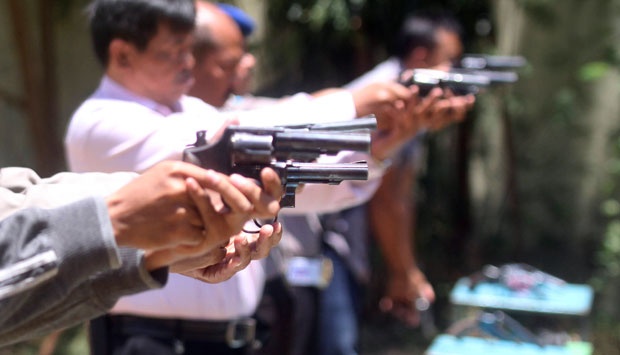Human Rights Watch: New Criminal Code Harmful to Women, Minorities, Free Speech
Editor
8 December 2022 14:14 WIB

TEMPO.CO, Jakarta - The Indonesian parliament passed a new criminal code on December 6, 2022, containing provisions that seriously violate international human rights law and standards, the Human Rights Watch (HRW) said today.
According to the HRW, the articles in the new code violate the rights of women, religious minorities, and lesbian, gay, bisexual, and transgender (LGBT) people, and undermine rights to freedom of speech and association.
Replacing Indonesia’s criminal code, which dates back to colonial Dutch rule, has been under consideration for decades. In September 2019, President Joko Widodo decided to delay parliamentary passage of a previous version of the draft criminal code after massive street protests.
He subsequently ordered his cabinet to conduct “socialization” (dissemination) of the bill, ostensibly to increase public participation.
The Covid-19 pandemic delayed work on the measure, which the parliamentary commission on law and human rights finalized on November 30. The House of Representatives’ plenary session passed the bill, which contains 624 articles, on December 6.
“Indonesia’s new criminal code contains oppressive and vague provisions that open the door to invasions of privacy and selective enforcement that will enable the police to extort bribes, lawmakers to harass political opponents, and officials to jail ordinary bloggers,” said Andreas Harsono, senior Indonesia researcher at the HRW.
“In one fell swoop, Indonesia’s human rights situation has taken a drastic turn for the worse, with potentially millions of people in Indonesia subject to criminal prosecution under this deeply flawed law,” explained Harsono.
When Indonesia’s President Joko Widodo visits Europe next week for a summit between heads of government of the European Union (EU) and the Association of Southeast Asian Nations (ASEAN), the HRW opined that EU leaders should strongly voice their opposition to the new law.
The HRW also expressed that concerned companies should also speak out strongly, including banks, investment funds, and other businesses involved in Indonesia in manufacturing, tourism, palm oil production, and other major industries.
The HRW also voiced their objection about the law making consensual sex outside of marriage to be a criminal offense, in which according to the HRW, is a full-scale assault against the right to privacy, permitting intrusions into the most intimate decisions of individuals and families.
Indonesia has millions of couples without marriage certificates who will be theoretically breaking the law, acccording to the HRW, especially among Indigenous peoples or Muslims in rural areas who married only using Islamic ceremonies, called kawin siri.
While the crimes of sex or cohabitation outside marriage can only be prosecuted on the complaint of the husband, wife, parents, or children of the accused, it will disproportionately impact women and LGBT people who are more likely to be reported by husbands for adultery or by families for relationships they disapprove of, the HRW explained.
In Indonesia, same-sex couples cannot marry, so this clause also effectively renders all same-sex conduct to be illegal. This is the first time in Indonesia’s history that adult consensual same-sex conduct has been proscribed by law, according to the HRW.
In 2016, petitioners asked the Constitutional Court to criminalize same-sex conduct and the judges rejected the case, responding that “[I]t is out of proportion to place all the responsibility in arranging social phenomena—especially regulating behaviours considered ‘deviant’—to criminal policies only.”
Moreover, the articles in the law maintain the criminalization of abortion with some exceptions, and now also criminalize distributing information about contraception to children and providing information about obtaining an abortion to anyone, which especially harms women and girls, said the HRW.
The HRW believes that such provisions violate women’s and girls’ right to comprehensive and inclusive sexual and reproductive health education and information, which also negatively impact women’s and girls’ ability to protect their health, make informed choices about their bodies and having children, and can lead to unwanted pregnancies which can affect a range of rights, including ending a girl’s education, contributing to child marriage, as well as putting women and girls’ health and lives at risk.
The blasphemy chapter in the criminal code has been increased from one to six articles, albeit with a shorter jail term providing a maximum three years for blasphemy, and for the first time includes an article outlawing leaving a religion or a belief as apostasy. Anyone who attempts to persuade a person to be a non-believer in a religion or belief can be prosecuted and jailed. The HRW believes this is a serious setback to protecting freedom of religion and belief in Indonesia. The penal code bucks a global trend to either not enforce blasphemy laws or to scrap them altogether.
The new law also provides that the government will recognize “any living law” in the country, which is likely to be interpreted to extend formal legality to hundreds of Sharia regulations imposed by local officials in areas across the country.
Many of these regulations discriminate against women and girls, such as curfews for females, female genital mutilation, and mandatory hijab dress codes. Many of these regulations also discriminate against LGBT people, said the HRW.
The law also bans insulting the president, the vice president, state institutions, Indonesia’s national ideology known as Pancasila, and the national flag. It also contains dozens of other articles on online and offline criminal defamation, making it possible for anyone to report anyone else for criminal defamation.
Indonesia’s Press Council already asked President Joko Widodo, who leads the ruling coalition, not to pass the bill, fearing that it will be used to send journalists to prison and to create an atmosphere of fear in many newsrooms throughout the country.
“Passage of this criminal code is the beginning of an unmitigated disaster for human rights in Indonesia,” said Harsono.
“Lawmakers and the government should immediately reconsider this damaging legislation, repeal this law, and send it back to the drawing board.”
TEMPO.CO
Click here to get the latest news updates from Tempo on Google News























